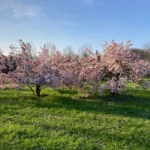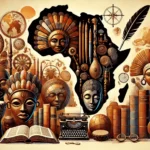The Living Word: Preserving Our Heritage Through African Languages
In today’s dynamic literary world, African languages are vital threads weaving together our heritage, identity, and collective memory.
For far too long, colonial tongues like English, French, and Portuguese have overshadowed the rich diversity of our indigenous languages, stifling the authentic narratives that resonate with the essence of being African.
As a dedicated African writer, I assert that writing in our native languages is a powerful act of cultural preservation and a form of resistance against forces that seek to diminish our identities.
The Influence of Language on Identity
When we delve into African literature, we encounter vibrant narratives, each uniquely expressed through the diverse languages of the continent.
The rhythmic allure of Mandinka from Mali to The Gambia, the poetic depths of Yoruba in Nigeria, and the intricate meanings found in Zulu, Swahili, and many others.
However, countless writers have historically been pressured to adopt colonial languages to gain recognition in international literary circles. This expectation not only marginalises our indigenous languages but also accelerates their decline, putting our rich cultural heritage at risk.
Ngũgĩ wa Thiong’o, in his landmark work Decolonising the Mind, emphasises the profound impact of language on our worldview. He eloquently argues that language transcends mere communication; it embodies our culture, history, and identity.
By embracing foreign tongues, we risk losing touch with the cultural richness inherent in our languages. Inspired by this perspective, I strive to explore innovative ways to keep African languages thriving in literature.
Frantz Fanon’s insights in Black Skin, White Masks further illuminate the cultural and psychological harm inflicted by colonial impositions, especially in language. He vividly describes how adopting a colonial tongue often leads to assimilation, eroding our native language and distorting our cultural identity.
Reclaiming Our Narrative in the Digital Age
Despite these challenges, the tide is shifting. A vibrant movement is emerging across the continent, reclaiming and promoting our indigenous languages—not just in personal conversations but also through literature, music, film, and art.
Increasingly, African writers are embracing their native tongues, creating a rich and diverse literary landscape that authentically reflects our experiences and aspirations.
In this digital age, we have unparalleled opportunities to amplify African languages for a global audience. Through translations, multilingual eBooks, podcasts, and other innovative platforms, technology bridges our colonial past with a vibrant and culturally rich future.
As Africans, we must embrace our languages as essential elements of our storytelling legacy. By doing so, we honour the ancestors who paved the way for us and ensure that the beauty and richness of African languages continue to thrive for generations to come.
Please take a look at my blog post about African folktales to learn more about our oral traditions.





Pingback: Digital Africa: Language and Culture Preservation — Lamin Ceesay
Pingback: The Cultural Misrepresentation of Africa — Lamin Ceesay